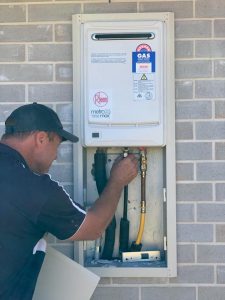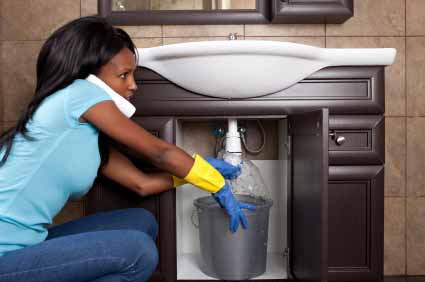Managing the Chief Water Heater Crisis Events
Managing the Chief Water Heater Crisis Events
Blog Article
Have you been on the lookout for related information about Warning Signs You Need Water Heater Repairs?

A hot water heater is among one of the most important fundamental devices that can be found in a house. With hot water heater, you do not require to undergo the anxiety of heating water manually each time there is a requirement to take a bath, do the laundry, or the recipes. Nonetheless, there is constantly an opportunity that your water heater would break down just like many mechanical devices.
It is important to note any kind of little malfunction and also tackle it swiftly before points get out of hand. A lot of times, your water heater begins to malfunction when there is a build-up of sediments as a result of continual use. As a precaution, regular flushing of your hot water heater is recommended to avoid debris accumulation and also prevent practical failing.
Common water heater emergency situations and also exactly how to take care of them
Dripping water heater container.
A leaking container could be a sign of rust. It can trigger damage to the flooring, wall and electrical gadgets around it. You can also go to risk of having your home flooded. In this circumstance, you need to switch off your water heater, permit it to cool, as well as meticulously seek the source of the problem. At times, all you require to do is to tighten a few screws or pipeline connections in cases of minor leakages. If this does not work and also the leak lingers, you might require to employ the solutions of a technician for a proper replacement.
Fluctuating water temperature.
Your water heating system might begin producing water of different temperatures normally ice cold or scalding warm. There could be a requirement to change either the thermostat or the heating device of your water heater.
Insufficient warm water
Handling a not enough supply of hot water can be discouraging. It might be that the water heater can't support the warm water need for your apartment. To handle this issue, you might attempt to change your heating unit's temperature level dial and also await a couple of mins. If the issue continues, you can request the assistance of an expert plumber. Conversely, you might upgrade your water heater to one with a bigger ability.
Discolored or odiferous water
When this occurs, you require to know if the concern is from the storage tank or the water resource. If there is no funny odor when you run cool water, then you are particular that it is your water heater that is malfunctioning. The stinky water can be created by rust or the build-up of microorganisms or sediments in the water heating unit container.
Conclusion
Some property owners overlook little caution and minor faults in their water heater system. This just brings about more damage and a possible complete break down of your home appliance. You need to manage your hot water heater mistakes as quickly as they come near avoid even more expenditures as well as unnecessary emergency problems.
With water heating units, you don't require to go through the anxiety of heating water manually every time there is a need to take a bathroom, do the washing, or the dishes. Your water heater could begin generating water of different temperature levels typically ice hot or chilly hot. It may be that the water heating system can't support the warm water need for your apartment or condo. If there is no funny scent when you run chilly water, then you are specific that it is your water heating unit that is defective. The odiferous water can be triggered by corrosion or the build-up of bacteria or debris in the water heater storage tank.
What’s Wrong With My Water Heater?
Not Enough Hot Water
You probably encounter this problem in the shower or while washing dishes. As you run your water, you’ll notice it starting to cool down. Turning up the hot faucet may not work, or it may only heat the water for a short period. Your hot water probably comes back and works normally one or two hours after you use it up.
If you’ve never had enough hot water, your heater may be too small for your home. If you haven’t had a problem until recently, there’s probably something’s wrong with your heater’s thermostat. Try adjusting it to see if you can feel a difference. Even if the thermostat’s working, the heating element itself could have burnt out. It’s also possible that a clog has restricted water flow into or out of the heater. Luckily, none of these problems are hard to fix, as long as you call them in early.
Water is Too Hot
Unregulated water heaters can make water dangerously hot. You probably have this problem if you’ve been scalded by your hot water. It’s also a likely culprit if you have trouble getting your faucets to produce a comfortable temperature. This problem is easy to fix, but it can also be a serious health hazard if you don’t address it. If you think your water is too hot, don’t doubt yourself; look into it!
Start by finding your heater’s thermostat and mark its position with a pen. Turn the thermostat to a cooler setting. Wait a couple hours to see if the problem is solved. If it isn’t, listen for boiling in the tank and look for water that comes out of the faucet steaming. In those cases, your temperature-pressure relief valve may be malfunctioning. This is a serious problem that can be dangerous, so you should have it looked at right away.
Discolored or Smelly Water
If all your water looks rusty or smells weird, there’s probably a problem with your pipes. If only your hot water looks weird, however, your water heater is probably at fault. Hot water discoloration comes in several varieties. It could look orange or brown-ish, taste rusty, or feel grainy. It could also look yellow or green-ish and taste gross or feel slimy. Either way, it’s a sign that there’s something wrong with your water heater’s tank.
Usually, hot water discoloration means sediment has built up in your tank. Sediment is made up of hardened minerals that accumulate on the inside of the water heater’s walls. When enough sediment builds up, it causes all kinds of problems–including your discolored water. Try flushing your water heater tank to clean out built up sediment. If the water still tastes rusty, your tank’s rust-preventing anode rod may have worn out. A pro can replace an anode rod easily, but without one, your tank could rust beyond repair relatively quickly.
Leaking
Water heaters can leak from several different places, and each leak means something different. If the leak is coming from a pipe above the heater, it’s possible the tank itself hasn’t been compromised. The cold inlet, hot outlet, and T&P pipes could all leak from above. Try tightening the problematic valve. If that doesn’t work, then the valve or pipe will have to be replaced.
If the leak is coming from the bottom of the tank, it’s important to determine exactly where it is. The leak could be coming out of the drain valve or your T&P valve below the tank. You can replace those valves and preserve the tank itself. If you notice the water tank itself leaking, however, that probably means it’s corroded beyond the point-of-no-return. Leaking water heaters are a big deal, so you should get yours replaced ASAP.
https://www.punctualplumberdallas.com/blog/whats-wrong-water-heater/

Do you appreciate reading up on Warning Signs You Need Water Heater Repairs? Make a review directly below. We'd be glad to hear your suggestions about this post. We are looking forward that you come back again before long. Appreciated our write up? Please share it. Help someone else discover it. Thanks for your time. Visit again soon.
Booking Page Report this page